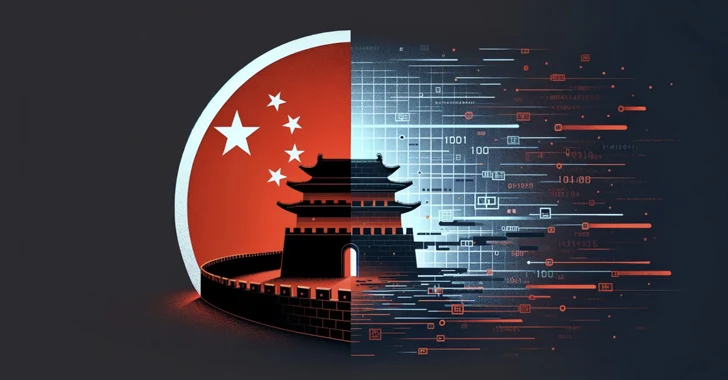Syrian President Basher Al-Asaad left Damascus in a much anti-climatic end, flying to Moscow. The loss of control over Syria has weakened Russia and Iran, both key overt supporters of Asaad’s regime. However with Russia’s war with Ukraine weakening Moscow’s influence in the middle east, China had started to fill in the void, especially with Iran and Syria, with a hope of replacing Russia and positioning itself as an alternative to the US in a very volatile region. China had also adopted a rather anti-Israel posture at the height of the Israel-Hamas conflict sponsoring a “Beijing declaration” of various Palestinian factions. With Asaad’s loss, China’s middle east policy is in a complete turmoil and how Beijing will react to the recent happenings is very important strategically in the Middle East.
Over the past two years, China has significantly expanded its engagement with both Syria and Iran, reinforcing its influence across the Middle East through strategic partnerships, economic collaboration, and diplomatic mediation.
Engagement with Syria
In September 2023, Syrian President Bashar al-Assad visited China for the first time in nearly two decades, signaling a renewed focus on bilateral relations. During the visit, Chinese President Xi Jinping announced the establishment of a “strategic partnership” between the two nations. This partnership underscored China’s support for Syria in opposing foreign interference and safeguarding its sovereignty.
China has expressed a strong commitment to Syria’s reconstruction, pledging to assist in rebuilding its war-torn infrastructure and enhancing collaboration across sectors such as energy and transportation. In January 2022, Syria joined China’s Belt and Road Initiative (BRI), further cementing its position as a recipient of Chinese investment in infrastructure and development.
The strategic partnership formalized in 2023 marks a significant milestone, symbolizing China’s intention to play a key role in Syria’s post-war recovery and to deepen economic and political ties. In addition, China provided humanitarian aid, including medical supplies and relief materials following the devastating February 2023 earthquake.
Engagement with Iran
China has also strengthened its relationship with Iran, facilitating its integration into international organizations. With Beijing’s backing, Iran joined the Shanghai Cooperation Organization in 2022 and was welcomed into BRICS in 2024, signaling China’s role in broadening Iran’s engagement in multilateral frameworks.
High-level visits have further solidified ties. In February 2023, Iranian President Ebrahim Raisi led a delegation to Beijing, marking a historic visit where 20 cooperation agreements were signed, highlighting commitments in energy, trade, and security collaboration. Although large-scale arms deals remain limited due to international sanctions, the 25-year Iran-China cooperation agreement outlines provisions for military and security cooperation, pointing to the potential for future collaboration.
Mediation in Regional Conflicts in the Middle East
China has also emerged as a diplomatic mediator in the Middle East, achieving notable success in resolving regional disputes:
- Saudi-Iran Relations: In March 2023, China brokered a landmark agreement between Saudi Arabia and Iran, ending a seven-year rift. The agreement, signed in Beijing, included commitments to reopen embassies and restore diplomatic relations, showcasing China’s growing diplomatic influence. This agreement is also seen as a key factor in the re-entry of Asaad’s Syria into the Arab League.
- Palestinian Unity Efforts: In July 2024, China facilitated an agreement between Hamas and Fatah to form a unity government for the West Bank and Gaza Strip. While the deal faced skepticism due to the entrenched divisions between the factions, it underscored China’s expanding role as a mediator.
China’s actions in the Middle East reflected a strategic ambition to position itself as an alternative to Western influence in the region. By leveraging economic partnerships, fostering diplomatic agreements, and supporting reconstruction efforts, China has strengthened its ties with key Middle Eastern nations. However with Syria’s regime collapsing and demonstrating the weakness of Iran and the loss of influence of Russia, how seriously China’s position is affected in the Middle East is yet to be seen. Moreover it is important to see how China will react, will it double down and invest more in the “Axis of Resistance” countries continuing to back Iran? Or will it cut its losses and change its policies, joining the winning side.
About the Author
Sergio Restelli is an Italian political advisor, author and geopolitical expert. He served in the Craxi government in the 1990’s as the special assistant to the deputy Prime Minister and Minister of Justice Martelli and worked closely with anti-mafia magistrates Falcone and Borsellino. Over the past decades he has been involved in peace building and diplomacy efforts in the Middle East and North Africa. He has written for Geopolitica and several Italian online and print media. In 2020 his first fiction “Napoli sta bene” was published.
Sergio Restelli-blogs.timesofisrael.com

